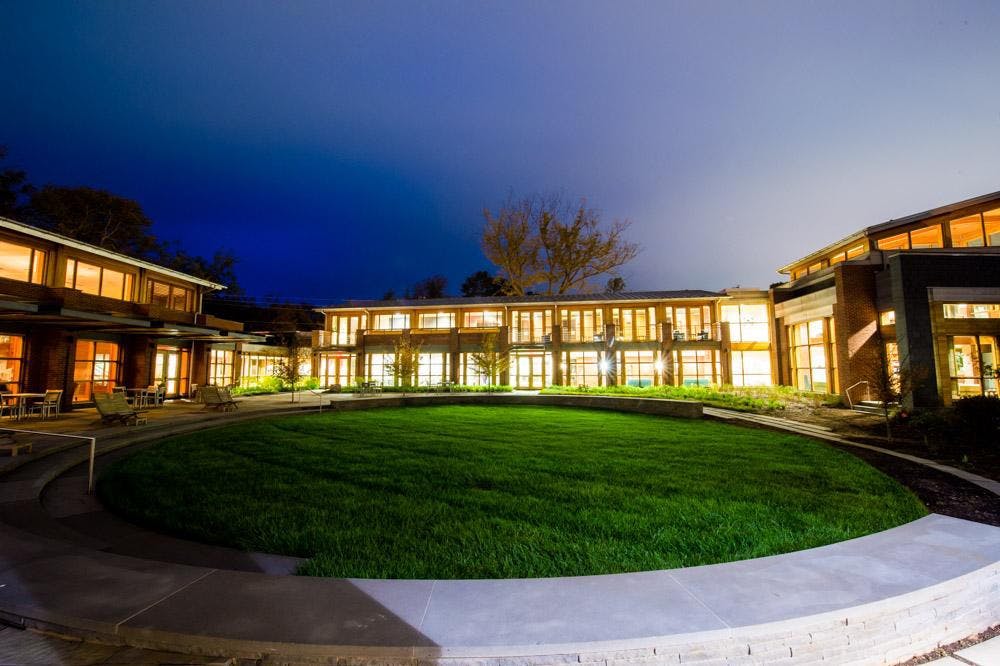The Jefferson Scholar Foundation announced last Wednesday the recipient of its first endowed professorship — J.C. Cang, a neurobiology professor at Northwestern University in Evanston, Ill. As recipient of the Paul T. Jones Jefferson Scholars Foundation Professorship, Cang — along with his wife, Xiaorong Liu — will become a joint member of both the psychology and biology departments within the College in Fall 2017.
“Professors Cang and Xiaorong Liu will be instrumental components of the teaching and research missions of the University,” Ignacio Provencio, head of the professorship search committee and professor of biology, said. “Both of them will teach classes to undergraduate and graduate students, have active federally-funded labs and provide service to the University by participating on relevant committees.”
Over the past few years, Cang has received many of the nation’s oldest and most prestigious awards for young scientists and scholars for his research in neuroscience, notably the Sloan Research Fellowship and the Klingenstein Fellowship Award in Neurosciences. Cang hopes to draw upon his skills established at Northwestern while at the University, especially when working with students.
“He has a long history of working with [undergraduates] at Northwestern University, and he plans to continue doing so at U.Va.,” Provencio said.
Cang will help lead neuroscience research efforts at the University, continuing his previous research interests. At Northwestern, Cang’s research is dedicated to understanding the neural basis of the visual system — its organization, function and development. Specifically, his research team has made discoveries concerning the interaction between the sensory experience and visual functions in the cortex during a critical period in early life.
“I will continue this research at U.Va., and this Endowed Professorship will allow me to pursue more ambitious and risky projects along these general directions,” Cang said. “I am extremely grateful to Mr. Paul T. Jones and the Jefferson Scholars Foundation for their generous support.”
Both Cang and Liu received doctorates of biology at the University. As he is already familiar with many members of the University’s neuroscience faculty, Cang looks forward to interacting with colleagues interested in other neuroscience, biology, psychology and cognitive science specialties.
“We are excited by the momentum being built across Grounds in neuroscience, particularly as indicated by the newly established Brain Institute,” Cang said. “I feel we can add to this momentum by building a strong research program that studies neuroscience at the circuit and system levels.”
The Brain Institute was established last spring as part of a new multidisciplinary initiative at the University. It is the first of five University institutes created to undertake a few of the world’s most critical and compelling issues.
Established in 1980, JSF holds a reputation for attracting academically talented undergraduate and graduate students to the University. In 2012, JSF announced the creation of two endowed professorships. Since the announcement, the foundation has made increased headway, raising enough money to fill eight additional professorships in the coming years.
“We plan to continue raising money for these chairs over the next decade as we believe there is nothing more critical to the University's future than attracting outstanding scholars to the faculty,” JSF President Jimmy Wright said. “Three additional searches for JSF chairs are currently under way at the University — one in the School of Medicine, one in the Darden School and one in the College.”
Through these new professorships, JSF hopes to continue its mission of enhancing the University community through the attraction of talented individuals with remarkable intellectual expanse.
“The Foundation is very excited about and committed to this effort,” Wright said. “We believe it can have a transformative effect on the University, will allow the University to compete for the best minds in the world and will benefit legions of U.Va. students for years to come.”







